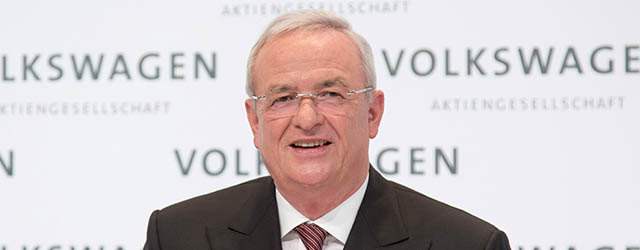Winterkorn is forced to resign after it was revealed the company was guilty of manipulating diesel emission tests.

When Martin Winterkorn was granted a two-year extension as CEO of Volkswagen in September, it was hoped the renewed contract would put an end to a power struggle with longtime chairman Ferdinand Piech, who subsequently resigned. Experts figured the decision would usher in a period of calm—thus enabling the automaker to undertake a much-needed restructuring.
Instead, Winterkorn—and Volkswagen—are in a world of trouble. The VW boss was forced to resign after it was discovered that the company manipulated emissions tests on diesel cars sold in the US. Less than a week later, German prosecutors launched an investigation of Winterkorn after Volkswagen’s management admitted the automaker had also rigged auto emissions tests in Europe.
The new CEO of Volkswagen, former Porsche boss Matthias Müller, faces an enormous task. The former head of Volkswagen’s Porsche division has, in his first week in charge of the group, ousted several top executives, including the research & development chiefs of VW, Audi and Porsche. He also announced that Volkswagen would refit cars affected by the emissions scandal. The recall could involve up to 11 million vehicles worldwide, the company estimates.
In addition, Volkswagen has set aside €6.5 billion ($7.3 billion) to help limit the damage from the scandal.
But some observers say the war chest isn’t nearly enough to cover potential regulatory fines and customer lawsuits, not to mention the bill for refitting millions of cars worldwide. Indeed, JP Morgan analyst Jose Asumendi reckons the company’s liabilities could top €40 billion.



